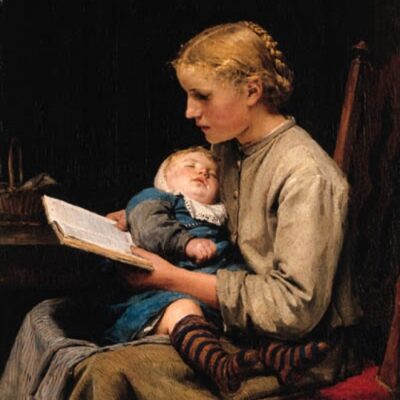Kindred by Octavia E. Butler
Before I began attending The Charlotte Mecklenburg Library System’s Social Justice Book Clubs and Learning Circles devoted to teaching and discussing Black History, I had never heard of Octavia E. Butler. Our paths should have crossed. I was an avid reader, interested in history – majored in it while attending an urban college. Her novels should have been required reading. So, now in my seventies, I am trying to compensate, reading those brilliant Black authors I missed out on in the past while keeping up with contemporary Black writers currently being published. I am particularly drawn to novels intentionally designed to make readers uncomfortable and aware of the connections between past and present-day events and circumstances. Kindred successfully does both.
Octavia E. Butler was inspired to write Kindred partly because “she had heard so many young Black Americans minimizing the horrors of slavery and claiming that if they had been enslaved, they simply wouldn’t have tolerated this or that.” She wanted to write a novel that showed readers what it might feel like to become a slave: “not merely to teach them the brute facts about this American institution, but to show them, on the page, teeth getting kicked out, backs being torn open from whips, white slaveholders casually attempting to rape black women, who would be savagely beaten, even killed, if they resisted.”
The plot of Kindred begins on June 9, 1976, when Edana (Dana) Franklin is transported physically and psychically from Los Angeles into a slave society in 1815 Maryland. The details of how this happened to her is not clarified in the novel’s narrative as it is the experience of slavery in the past that is the focus of the story. In fact, her powerlessness to control this change in her circumstances, her nausea and discomfort, and her disorientation are similar to the accounts of American slaves’ Middle Passage from Africa to the slave markets in the New World.
Dana discovers that her fate depends on the choices of a white ancestor named Rufus who triggers her time traveling trips every time he is in mortal danger. Unfortunately, each time she travels back to the early nineteenth century, Dana experiences the horrors of slavery. At first, she is an observer of whippings, beatings, degradation, and humiliations as in this quote when two slaves – a husband and wife – are found breaking the plantation rules by sleeping together.
By now, the man had been securely tied to the tree. One of the whites went to his horse to get what proved to be a whip. He cracked it once in the air, apparently for his own amusement, then brought it down across the back of the black man. The man’s body convulsed, but the only sound he made was a gasp. He took several more blows with no outcry, but I could hear his breathing, hard and quick.
Behind him, his child wept noisily against her mother’s leg, but the woman, like her husband, was silent. She clutched the child to her and stood, head down, refusing to watch the beating.
Then the man’s resolve broke. He began to moan – low gut-wrenching sounds torn from him against his will. Finally, he began to scream.
I could literally smell his sweat, hear every ragged breath, every cry, every cut of the whip. I could see his body jerking, convulsing, straining against the rope as his screaming went on and on. My stomach heaved, and I had to force myself to stay where I was and keep quiet. Why didn’t they stop!
“Please. Master,” the man begged. “For Godsake, Master, please …”
I shut my eyes and tensed my muscles against an urge to vomit.
I had seen people beaten on television and in the movies. I had seen the too-red blood substitute streaked across their backs and heard their well-rehearsed screams. But I hadn’t lain nearby and smelled their sweat or heard them pleading and praying, shamed before their families and themselves. I was probably less prepared for the reality than the child crying not far from me. In fact, she and I were reacting very much alike. My face too was wet with tears. And my mind was darting from one thought to another, trying to tune out the whipping. At one point, this last cowardice even brought me something useful. A name for whites who rode through the night in the ante bellum South, breaking in doors and beating and otherwise torturing black people.
Patrols. Groups of young whites who ostensibly maintained order among the slaves. Patrols. Forerunners of the Ku Klux Klan.
The man’s screaming stopped.
After a moment, I looked up and saw that the patrollers were untying him. He continued to lean against the tree even when the rope was off him until one of the patrollers pulled him around and tied his hands in front of him. Then, still holding the other end of the rope, the patroller mounted his horse and rode away half-dragging his captive behind him. The rest of the patrol mounted and followed except for one who was having some kind of low-voiced discussion with the woman. Evidently, the discussion didn’t go the way the man wanted because before he rode after the others, he punched the woman in the face exactly as her husband had been punched earlier. The woman collapsed to the ground. The patroller rode away and left her there. [pp. 36-37]
Fairly quickly, Dana is no longer an observer but becomes a victim of slavery’s abuses as well, illustrated in this quote when Jake Edwards, master of the field slaves, orders her to do the washing.
“You lyin’ nigger, you do what I tell you to do!” Edwards loomed over me. “You think you been whipped? You don’t know what a whippin’ is yet!” He carried his whip around with him. It was like part of his arm – long and black with its lead-weighted butt. He dropped the coil of it free. [p. 182]
I have come to a place in my life where I know that to challenge my prejudices, I must be informed and, yes, sometimes shocked and unsettled as I learn about realities completely foreign to me. If I only read what I find comfortable, what confirms my existing beliefs, I cannot make informed decisions or help others make informed decisions. Kindred, and brave novels like it, remind me that, as Balwin wrote: “American history is longer, larger, more various, more beautiful and more terrible than anything anyone has ever said about it” and that “everyone has the right and the necessity to examine everything.”
And as Octavia E. Butler reminds us through her incredibly strong character Dana:
“You might be able to go through this whole experience as an observer…” “I can understand that because most of the time, I’m still an observer. It’s protection. It’s nineteen seventy-six shielding and cushioning eighteen nineteen for me. But now and then, like with the kids’ game, I can’t maintain the distance. I’m drawn all the way into eighteen nineteen, and I don’t know what to do. I ought to be doing something though. I know that.” [p. 101]
















